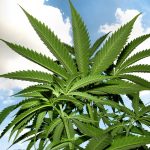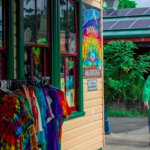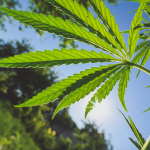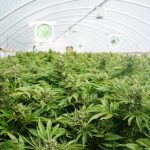Hemp foods are now legal across Australia
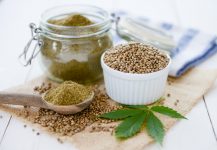
Hemp-based foods are now legal across Australia and are expected to appear in supermarkets everywhere.
A recent agreement between Australian and New Zealand food safety authorities means hemp-based food products are now legal to produce, sell and purchase, creating new markets for the versatile ‘superfood’.
What is hemp?
To make it clear, hemp is not the marijuana we all know gets you ‘high’. While hemp and marijuana leaves and buds come from the same species of plant, THC levels are extremely low in hemp. THC is the chemical which produces the ‘high’.
Your body quickly digests these low levels of THC as you ingest them – so the chemical has no ‘psychoactive effect’. For anyone keen on trying to see if a ‘high’ is possible, experts say that if you eat it all day long, you’re likely to end up with a bloated stomach, and possibly a headache, but no euphoric feeling.
Hemp is one of the oldest domestic crops in the world, and it’s an incredibly useful plant – the seed contains protein, vitamins, minerals and fatty-acids. It’s both nutritious and safe to eat, and in many quarters it’s being hailed as a miracle food.
But hemp has many other uses. It’s a renewable resource which can be made into fabric, body care products, construction materials, paper, biofuels and plastic composites. In fact, in Europe, BMW and other luxury car manufacturers are currently experimenting with hemp as a totally biodegradable plastic in their dashboard and other interior vehicle fittings.
Changes to the law
Until now, in Australia hemp has been classified in a way that prohibits all species of cannabis from being added to food, or sold as a food. While it has been legal to produce hemp, it has only been possible to do so under strict licensing conditions.
Authorities have been wary of approving hemp foods for fear that people would return positive drug tests after eating them, but experts say that is ‘virtually impossible’.
Although the authorities have declared hemp foods legal, there are still changes that need to be made to individual state legislation relating to food, drugs and medicines. These these changes could take some time to process, so that all jurisdictions come into line with the federal stance.
Once the changes are finalised, hemp food will be clearly labelled as such. Some retailers have previously flaunted the laws through labelling – for example The Cruelty Free Shop has been selling hemp chocolate, but labelled it as a ‘body scrub’.
Billion-dollar global industry
Retailers and consumers are not the only ones to benefit from legalisation. Hemp also has enormous benefits to the agricultural sector.
Farmers say hemp is not only relatively easy to grow, but is an excellent ‘rotational’ crop that can be used as a tool for land management.
It is fast-growing, uses little water, and requires no pesticides. The plant’s aggressive rooting structure helps break up soil allowing it to be turned easily. What’s more, crops of hemp enrich the topsoil and remove an immense amount of carbon dioxide from the air.
Hemp is a growing global industry which is already worth a billion dollars per year, and Australian experts predict that new relaxed classifications will increase demand not just locally, but internationally too, stimulating jobs in farming and production and adding to Australia’s list of valuable agricultural exports.
One Australian producer expects that under the legislative change the Australian hemp industry could grow to a hundred million dollar enterprise within 12 months.
It is still illegal to in NSW to cultivate, possess and supply cannabis, although the government has been making moves to legalise its use for medicinal purposes.



